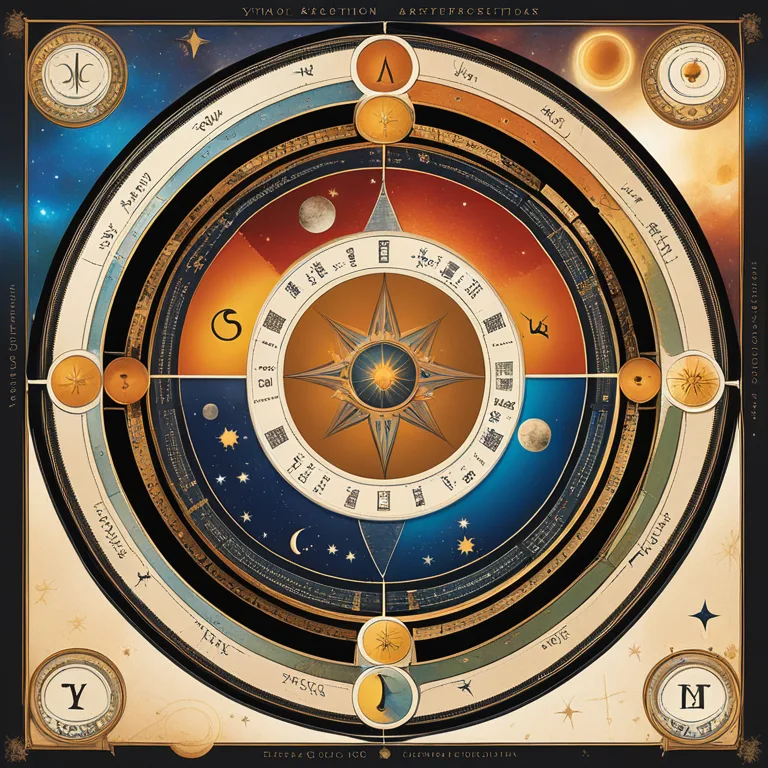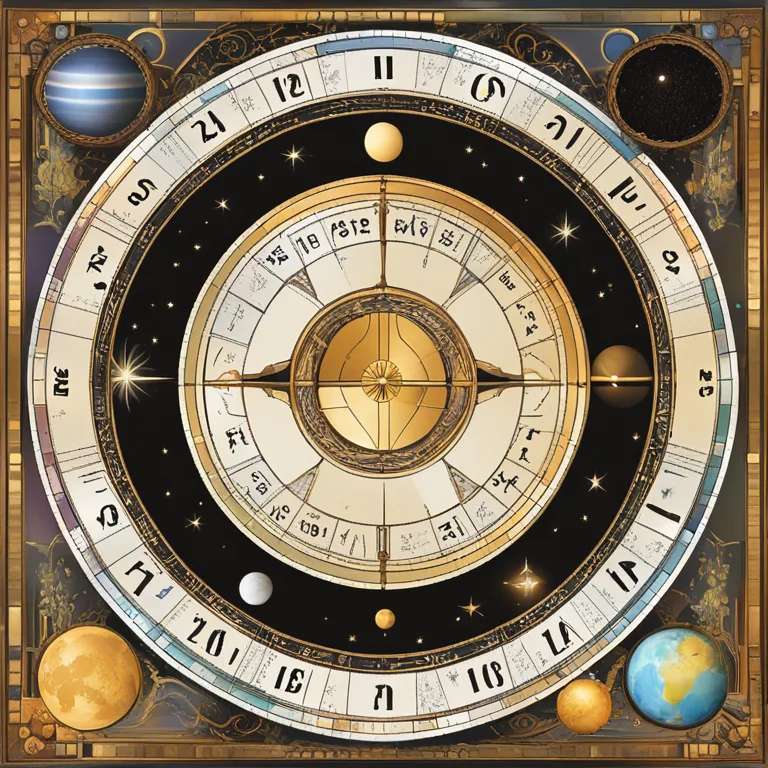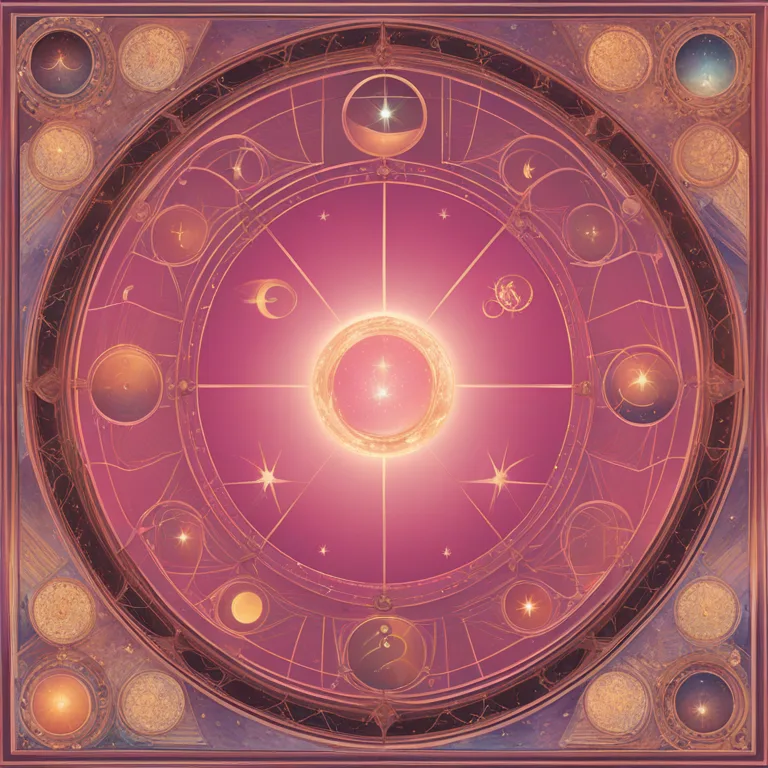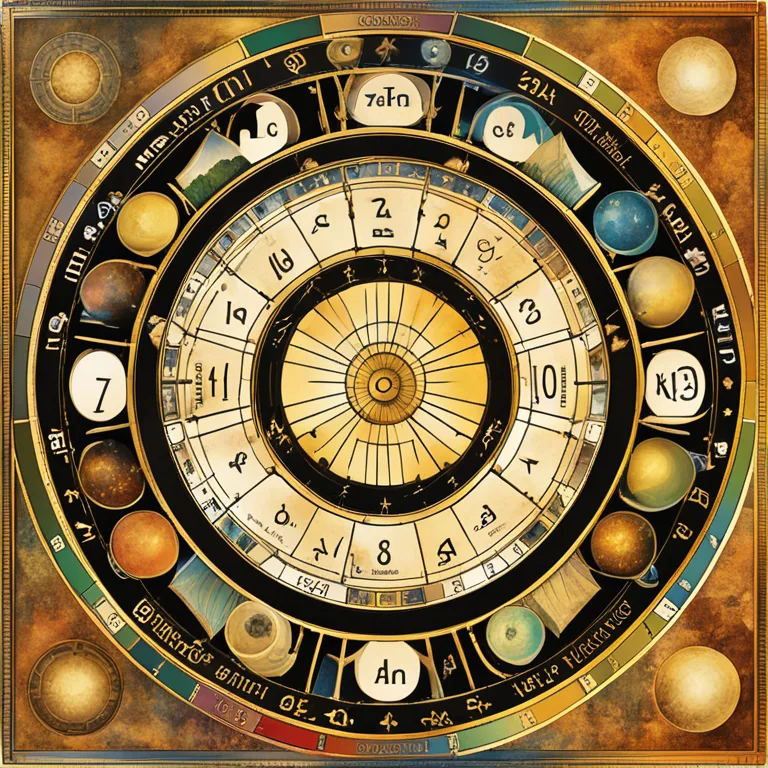
The Role of Astrology Houses in Synastry
Discover how astrology houses influence relationship dynamics in synastry readings.
article by Priya Deshmukh
The Basics of Synastry
Astrology offers various tools to examine and predict the energies that define human interactions. Synastry, one of these powerful tools, focuses primarily on relationship astrology, using birth charts to compare and contrast the cosmic interplay between individuals. At its core, synastry deciphers the chemistry between people, potentially providing remarkable insights into how they align or clash with one another. By analyzing planetary positions and aspects in each person's chart, astrologers can gather in-depth perspectives on love, friendship, business relationships, and more. Crucial to this analysis are the astrological houses, which frame these planetary discussions and lay the ground for intricate synastry readings.

Understanding Astrology Houses
Astrology houses divide the natal or birth chart into twelve segments, each governing specific life areas. Starting from the Ascendant, or rising sign, these houses unfold counter-clockwise, mirroring your life's journey from self-awareness to the profound collective connection. Personal houses (first through sixth) cover aspects from identity to daily routines, while interpersonal houses (seventh through twelfth) navigate relationships, transformation, and higher consciousness. When exploring synastry, houses reveal not only who you are but also how you interact with and impact your partner. Each planet within these houses adds richer nuances to the story of your relational patterns and bonds.

Synastry and Astrological Forecasts
For synastry studies relevant to 2024 and beyond, shifts in generational planets like Pluto can significantly influence collective relationship themes. A Pluto transit through Aquarius, for instance, emphasizes themes of transformation in societal structures and ideals in relationships, prompting communities to adopt unconventional relationship frameworks. Within the microcosm of individual relationships, checking the planetary positions and house placements for 2024 can elucidate how your partnerships are likely to grow, challenge, and potentially reinvent themselves during this period. Astrological forecasts, therefore, should take into account both individual synastry and broader cosmic movements.

Interpreting Houses in Synastry
In synastry readings, one partner's planets landing in the other's houses shed light on different facets of their relationship. For example, if Person A's Venus, the planet of love, lands in Person B's fifth house of romance and creativity, it could suggest a passionate and playful connection. Conversely, if Person A's Saturn, associated with structure and discipline, falls into Person B's fourth house of home and family, it may point to a shared commitment to building a stable domestic life or underlying themes of responsibility and boundaries within the relationship. Interpreting the interplay of planets and houses in this way helps astrologers paint a complex picture of relational dynamics.

Synastry in the Outer Houses
Looking at the outer houses in synastry allows for an exploration of a couple's shared aspirations and wider social interactions. Planetary placements in these houses can signal collective goals, joint friendships, or aligning on humanitarian efforts. A synastry analysis that finds one partner's Jupiter, the planet of expansion and luck, in another's eleventh house of friendships and social circles might hint at a relationship that benefits from and contributes to their wider community. Conversely, difficult placements like Uranus in another's eighth house could forecast unexpected changes or challenges in areas related to shared resources and intimacy.
Potential Challenges in Synastry House Analysis
While synastry can offer profound insights, interpreting astrological house overlays can present challenges. Some planet-house combinations may reveal friction areas or previous unresolved issues that resurface in relationships. For instance, Mars, symbolizing drive and conflict, placed in a partner's tenth house of career and public image, could indicate a power struggle or competitiveness that affects one's professional life. It is crucial to approach these challenging readings with empathy, highlighting areas for growth rather than forecasting doom. A knowledgeable astrologer can guide couples to harness these dynamic energies constructively.
Harmony and Growth Through Synastry
Ultimately, synastry serves as a tool to foster harmony and growth within relationships. Understanding house overlays helps individuals recognize their partner's influence on all life areas, encouraging empathy and respect. Relationships deemed 'difficult' astrologically can, with time and effort, become sources of significant personal development. As with all astrological practice, maintaining perspective and using insights judiciously are key. Synastry readings should empower individuals to navigate their relationships with more awareness, choosing to nurture the cosmic connections they share.
Published: 12/19/2023
Modified: 12/19/2023
More predictions
Come back here soon to learn more about yourself and your future


Astrospective: The Role of Houses
Delve into the astrological houses and their influence on your personal astrological chart, shaping various aspects of life.


Astrology Houses in Your Birth Chart
Discover how astrology houses based on your date of birth can reveal unique insights into various aspects of your life.


The Zodiac's Houses & Their Meanings
Discover the significance of the twelve astrological houses and their impact on your zodiac sign's life aspects.